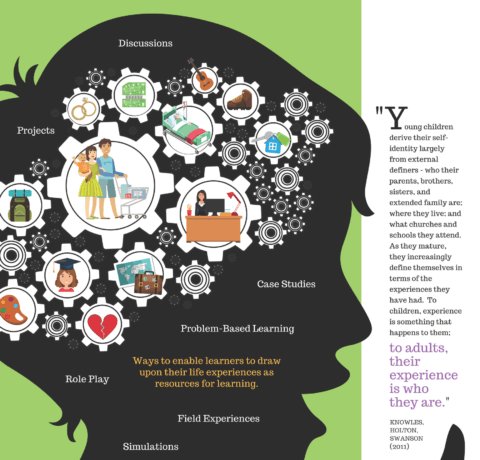10 Types of Online Training Learners Infographic
Understanding the different types of online training learners, summed up in following categories:
- Confident Learners
The main challenge with these learners is that they may become frustrated easily if the program moves too slowly, lacks clearly defined objectives, or does not encourage participation. They require an opportunity for interactions such as group discussions, team projects, and other shared experiences with their peers. - Overachievers
It is impossible to impress an overachiever, even with the most effective eLearning courses. To an overachiever, programs always impede learning in some way — a course may cover too many topics or too few, the content may be too deep or too shallow; the program may move too fast or too slow. However, although, a challenge, satisfying overachievers is well-worthwhile as they read more into assignments and are an asset to discussions. - Emotional Learners
Emotional learners are significantly influenced by their feelings and want to feel attachment to the course either through the instructor or the content. They like being invited to participate and, like overachievers, require feedback during training. - Integrated Learners
Integrated learners tend to form peer-like relationships with their trainers. They want to get more out of a course than simply receiving information — they want to use content to accomplish tasks without the need for guidance. Integrated learners are self-directed and are able to manage learning tasks and transfer knowledge to other situations. They have high standards for both themselves and others. - Unmotivated Learners
Unmotivated learners are looking for an easy course and often believe that eLearning courses are less challenging than brick-and-mortar programs. - Risk Takers
Effective eLearning courses are able to engage these learners when they talk about ways experts explore new ideas and discuss complex questions. Risk takers also enjoy eLearning programs that teach them how to recognize errors, solve complex problems and feature case studies. - Surprised Learners
Such learners are unaware of their inability to work independently and are unprepared to part from traditional methods, meaning they find online learning difficult. - Motivated/Engaged Learners
These hard workers have specific goals and are willing to work hard to overcome any difficulty. Whenever possible, eLearning professionals should allow these learners to choose the content they study and move at their own pace. - Dependent Learners
Dependent learners work diligently, frequently ask for help and feel insecure about their answers. Online instructors can help these students learn alone by encouraging them to read or watch content before seeking guidance and allowing them to thoroughly check their work before submitting a final answer. - Experiential Learners
Experiential learners are easily frustrated, have low-self confidence, and often produce low-quality work lacking originality. Experiential learners are often young and beginners to eLearning.







You can adjust your cookie preferences here.